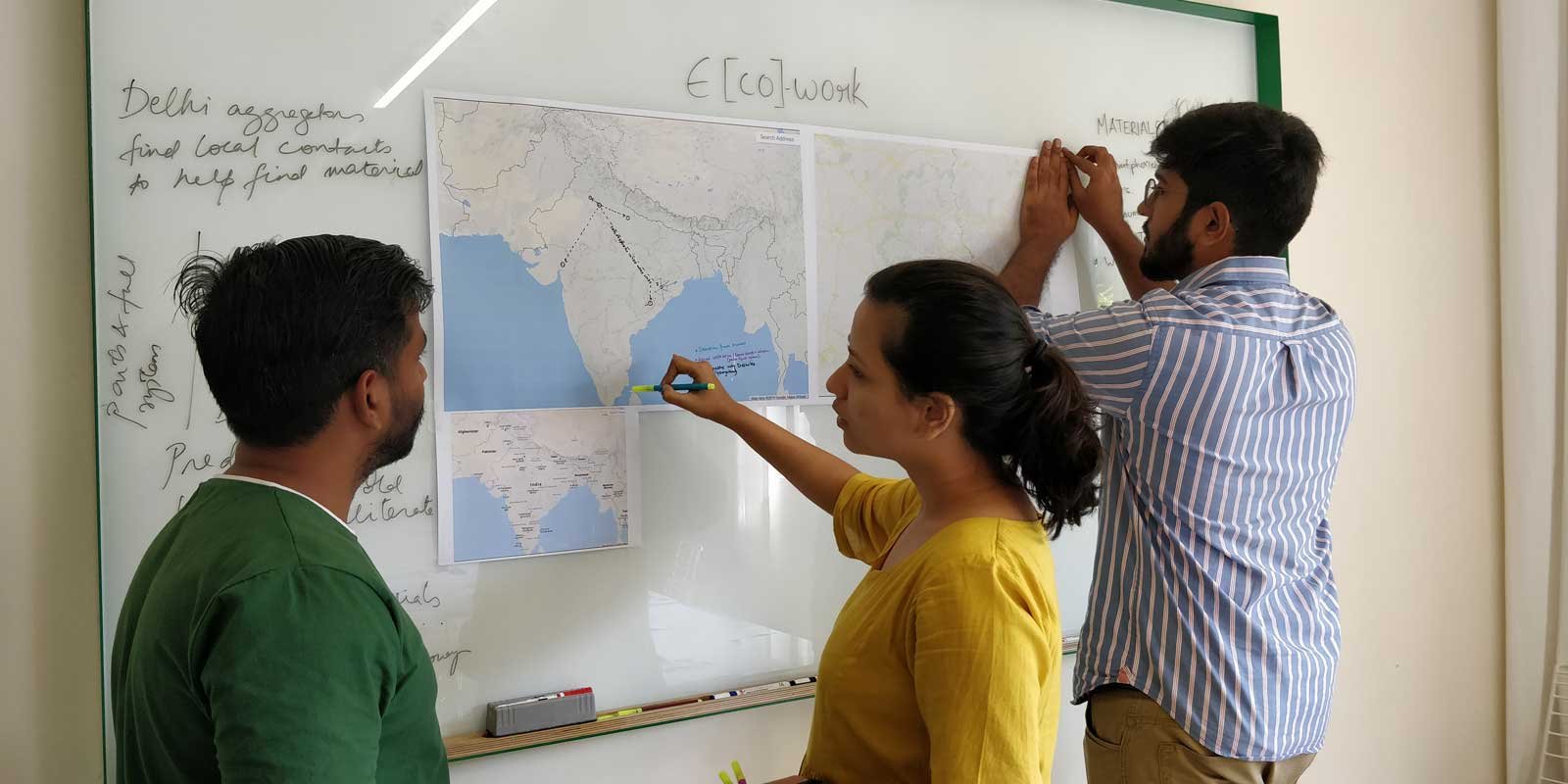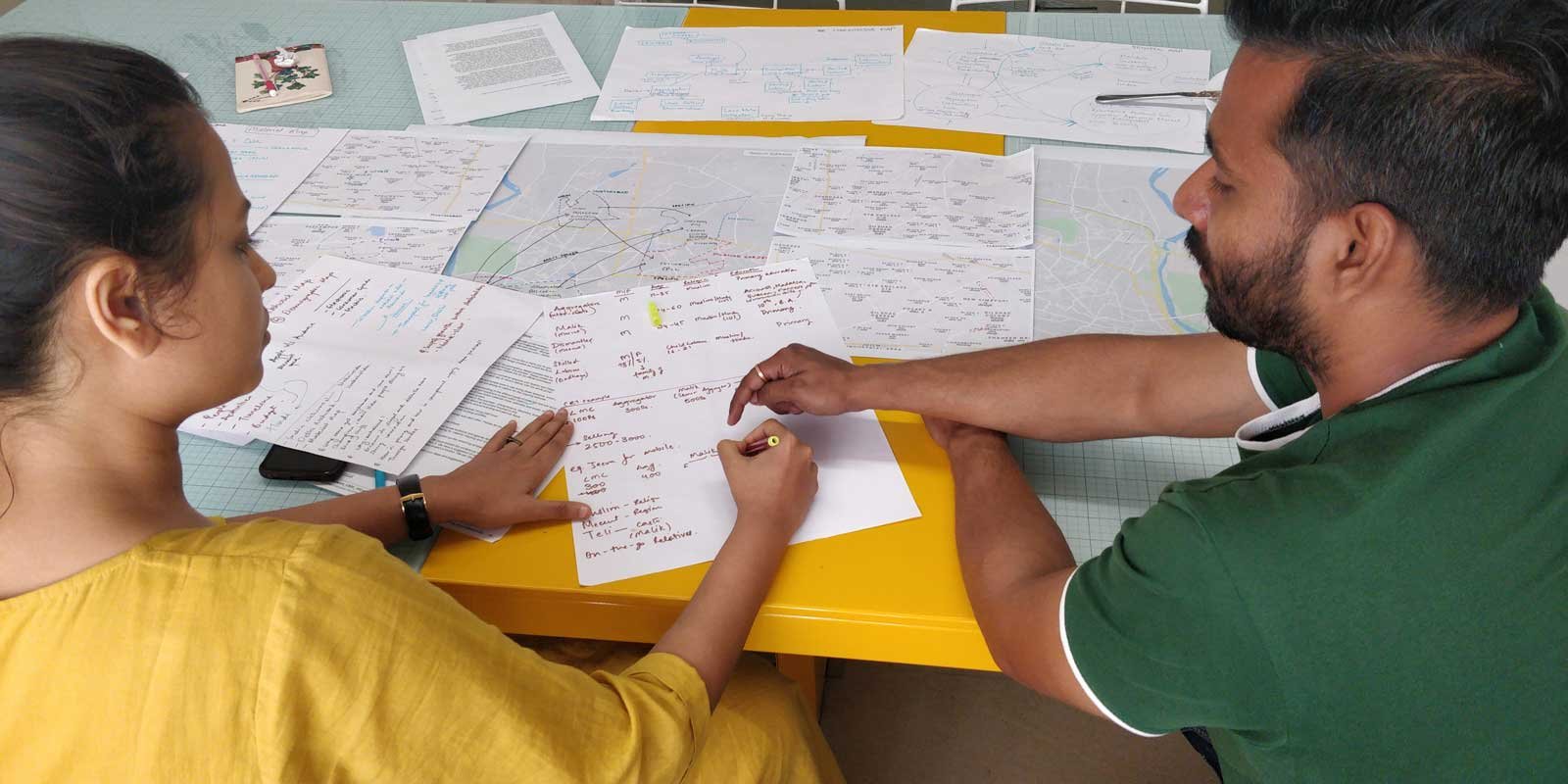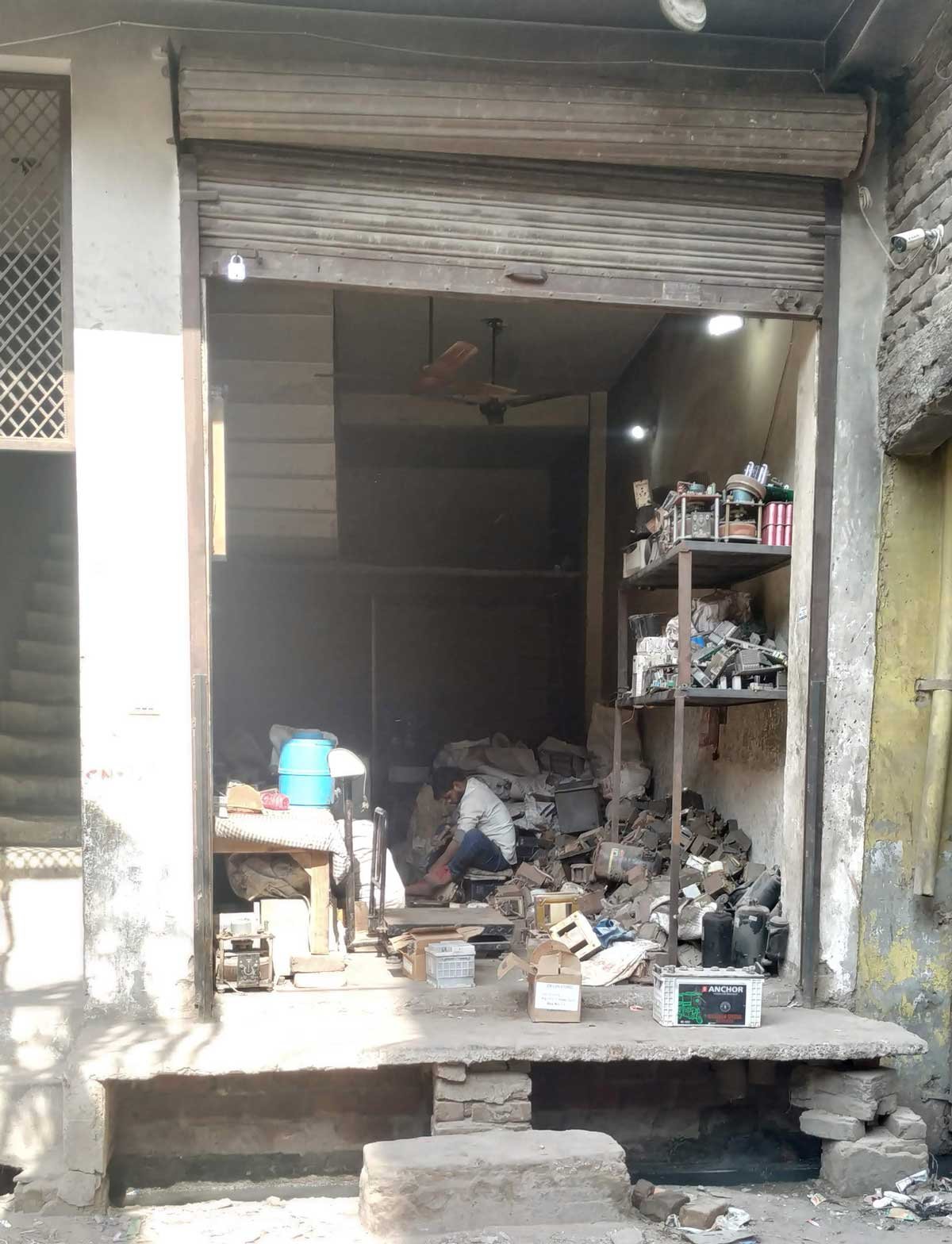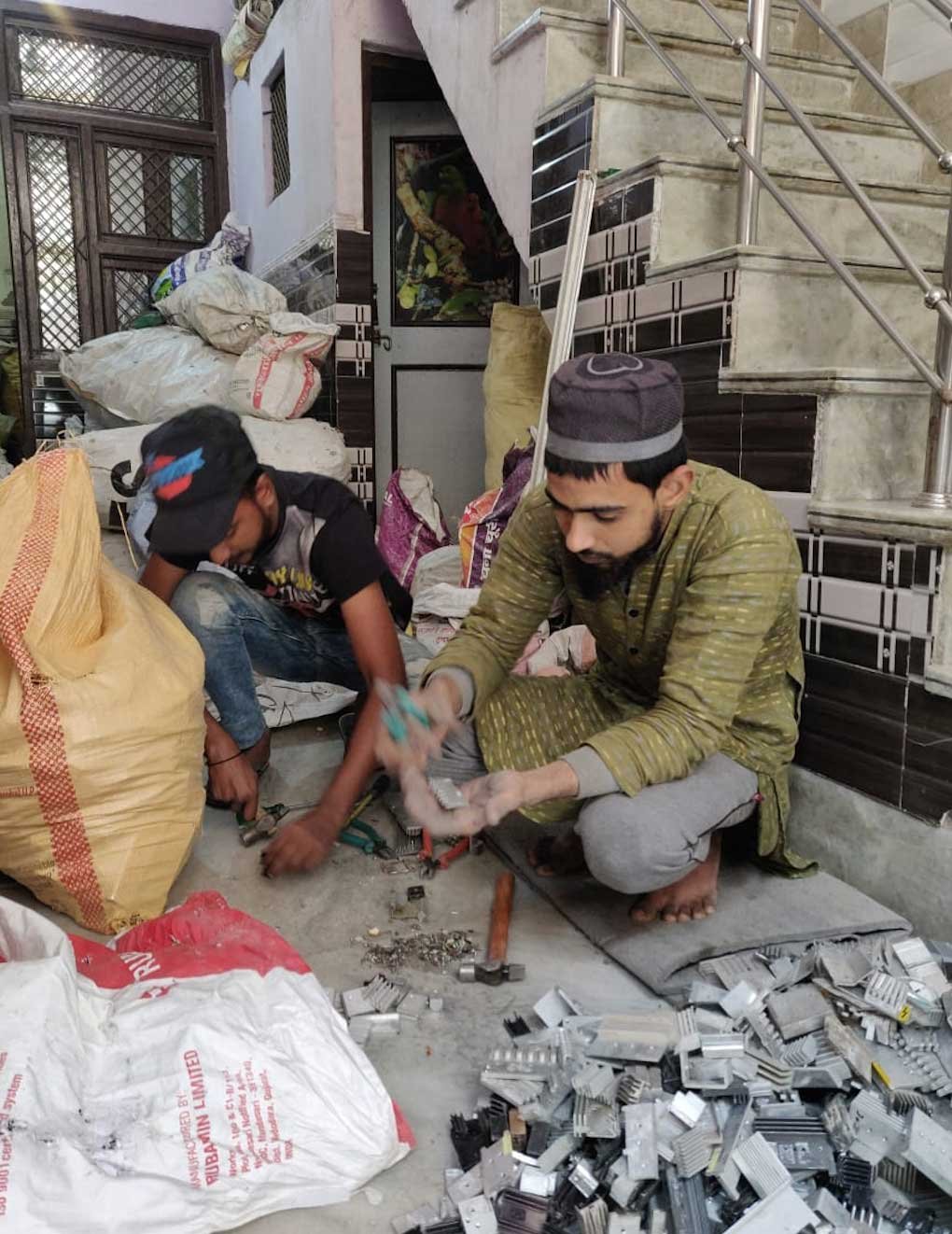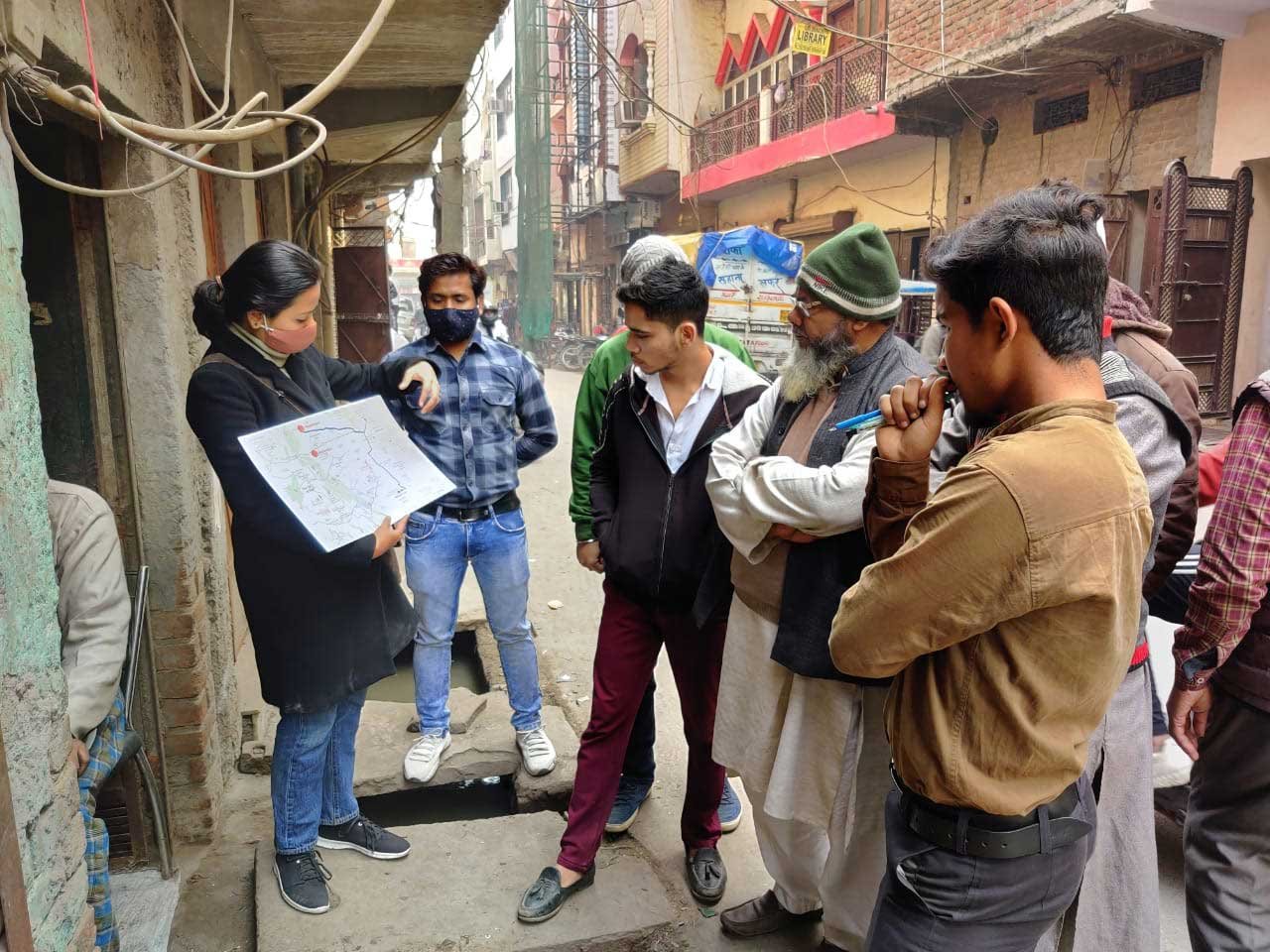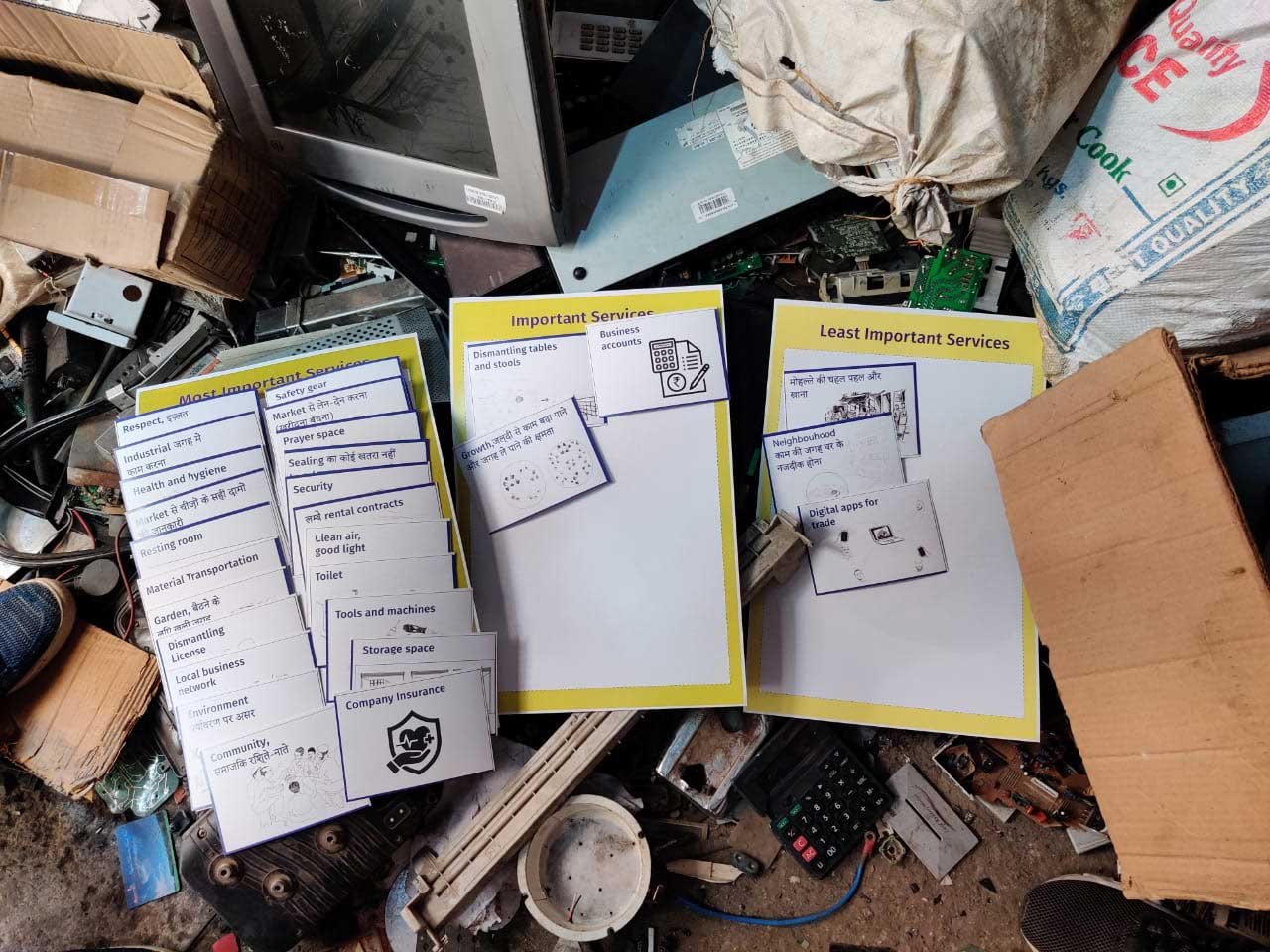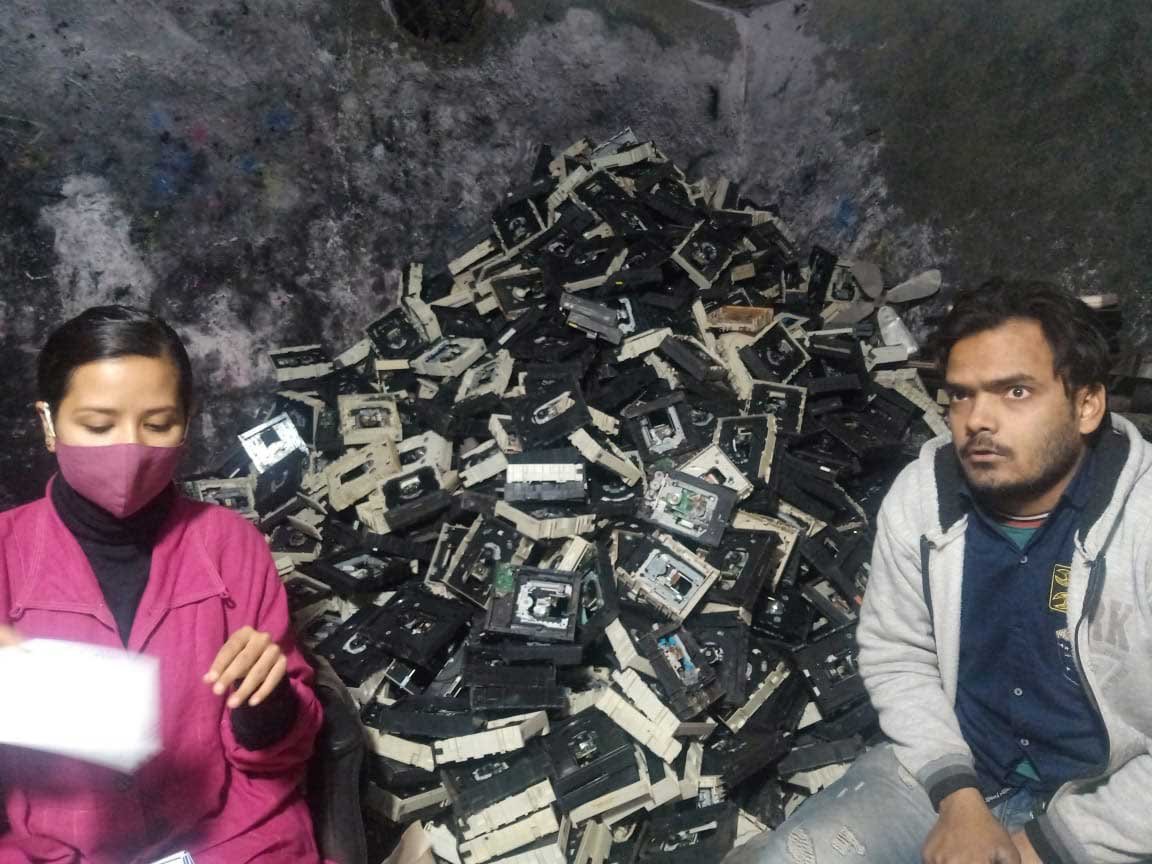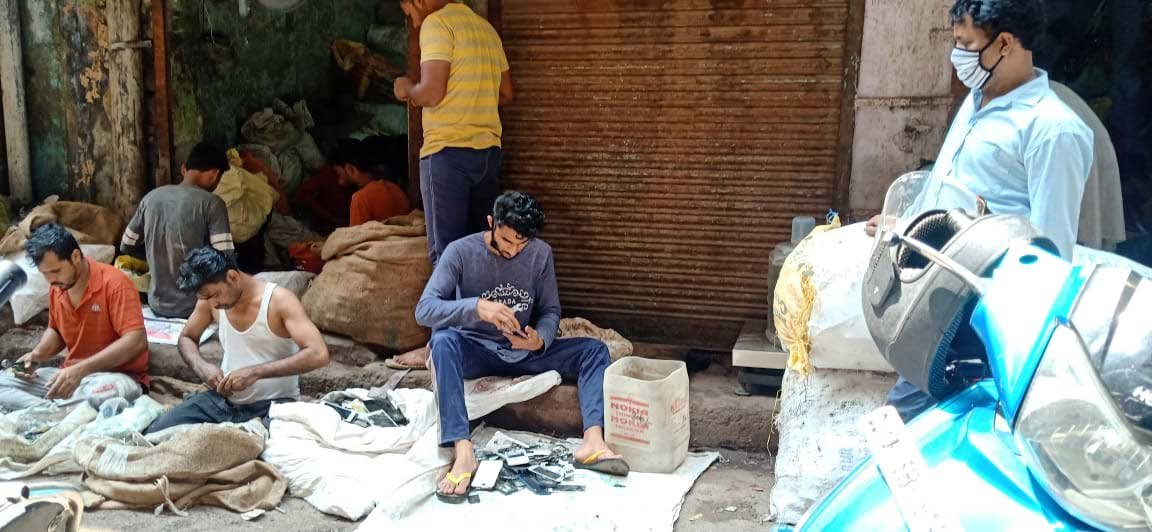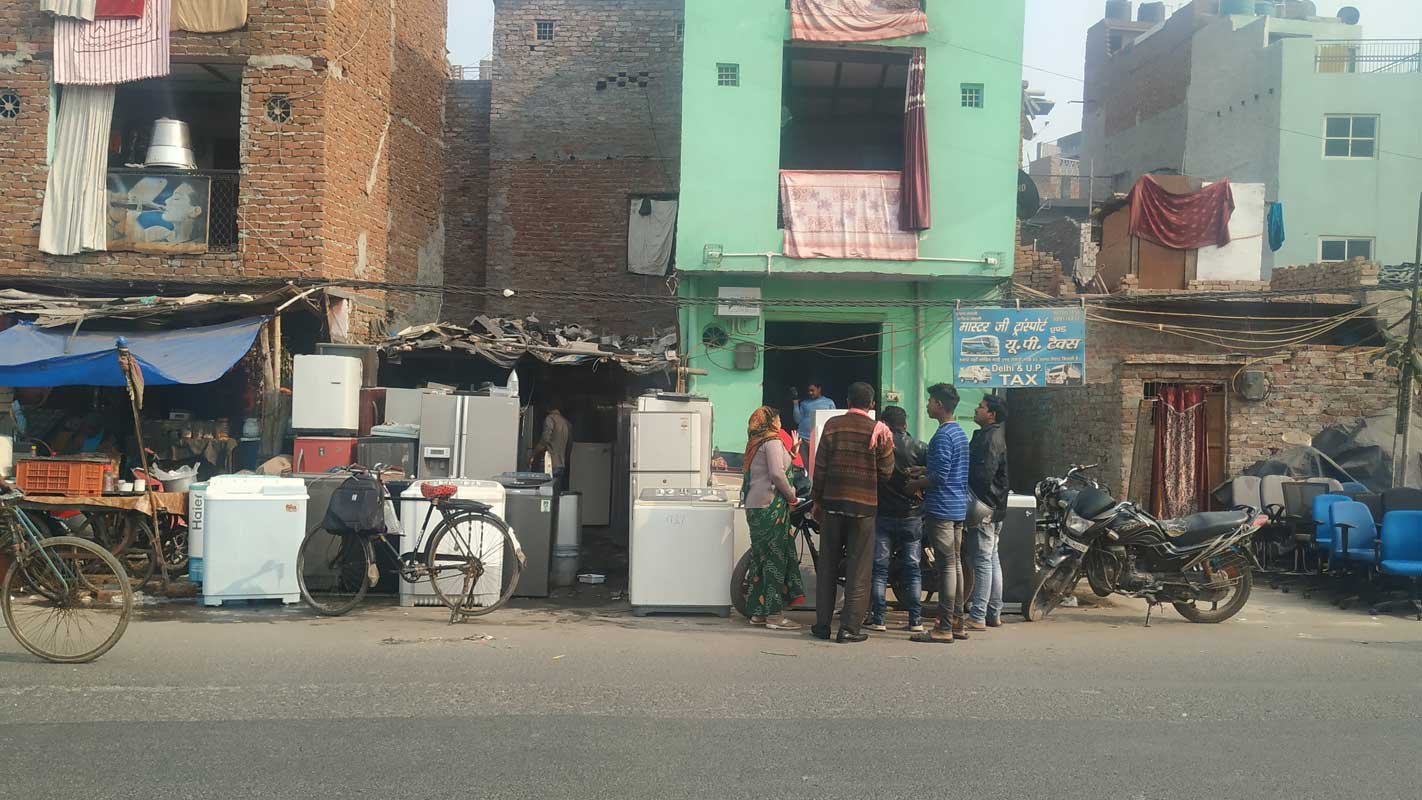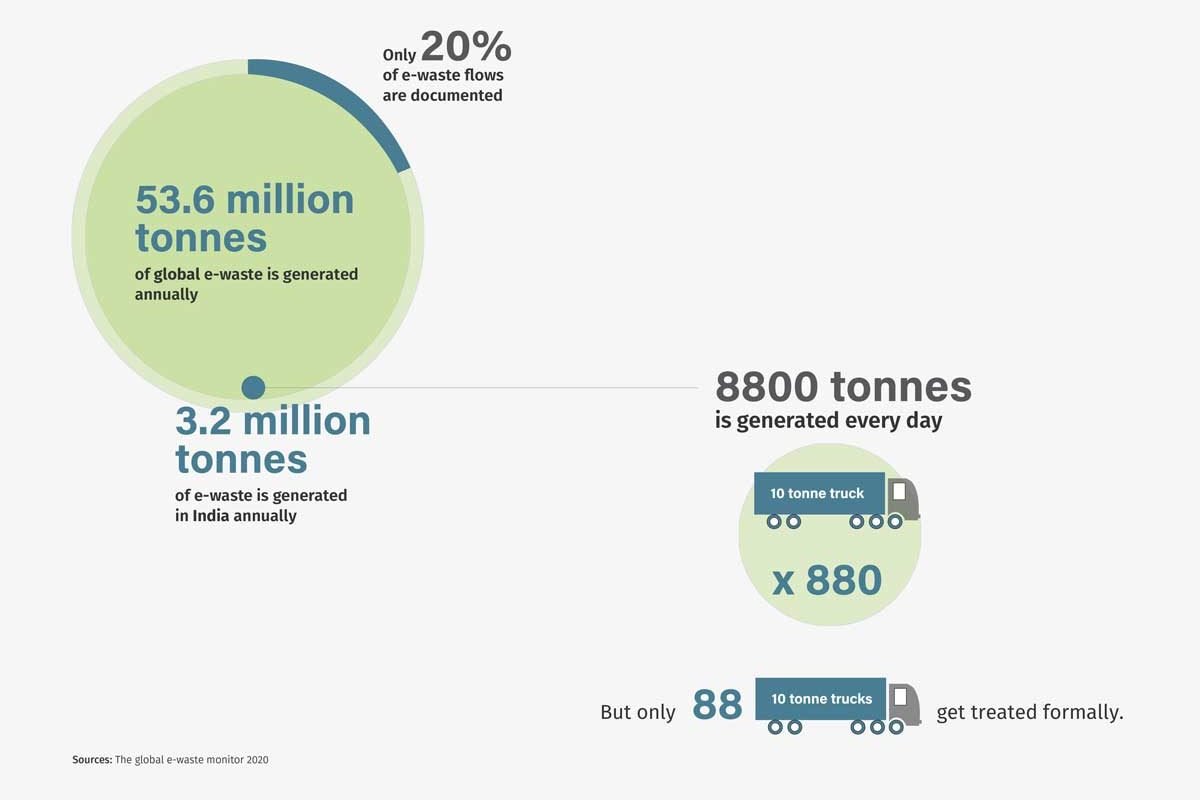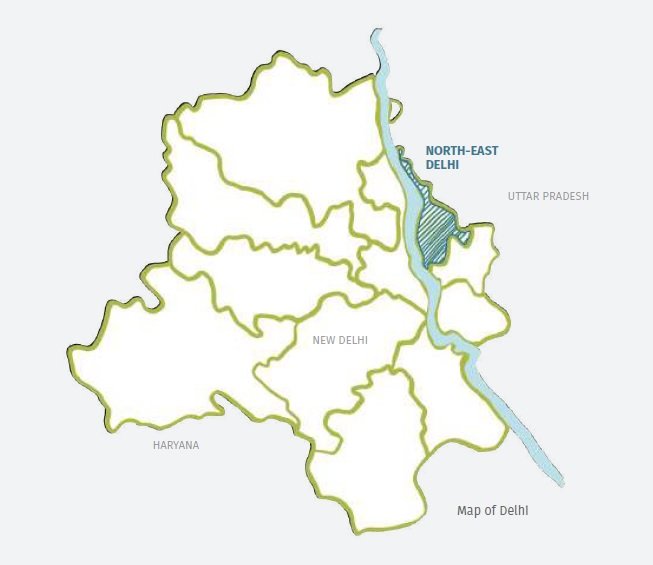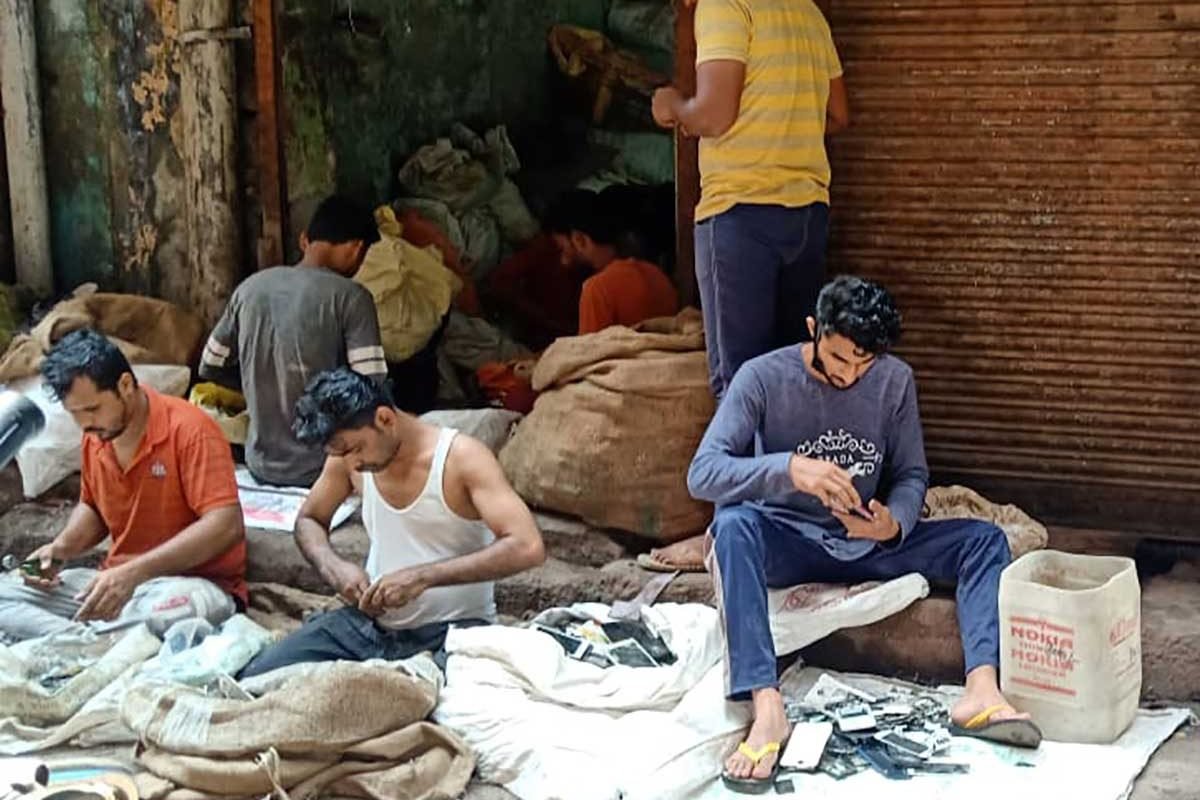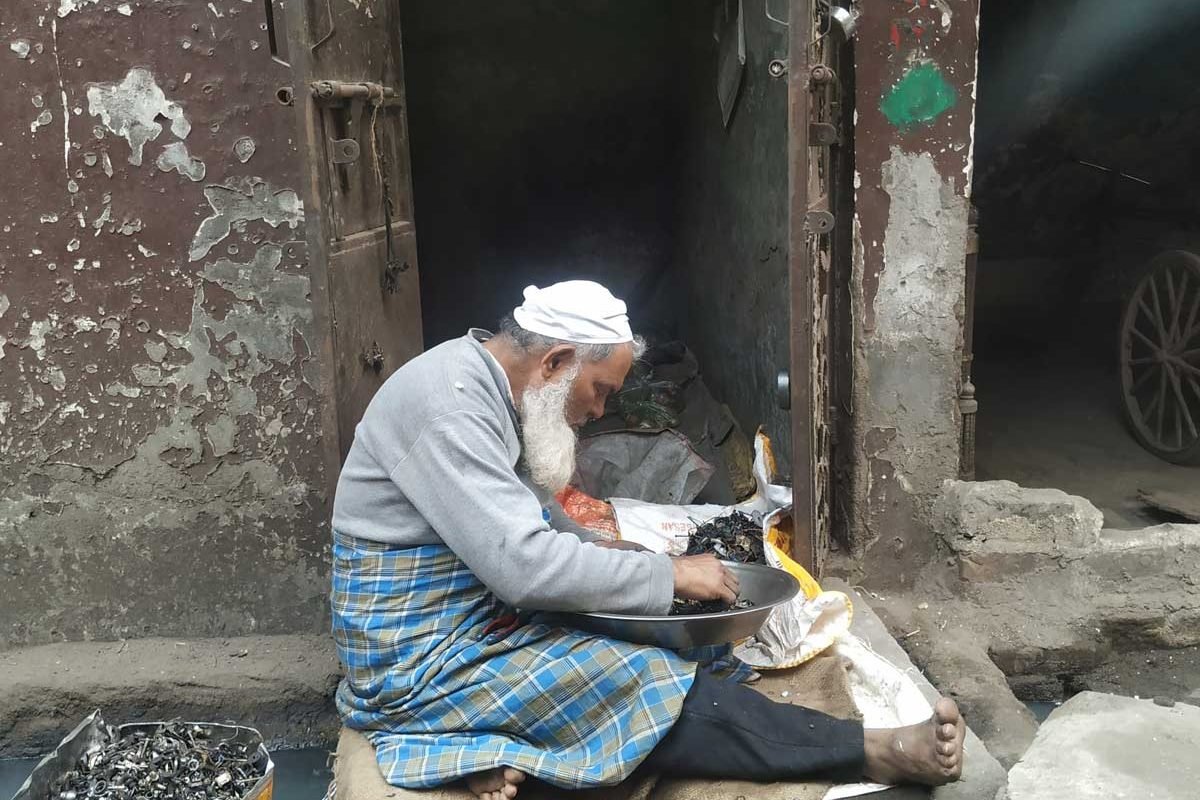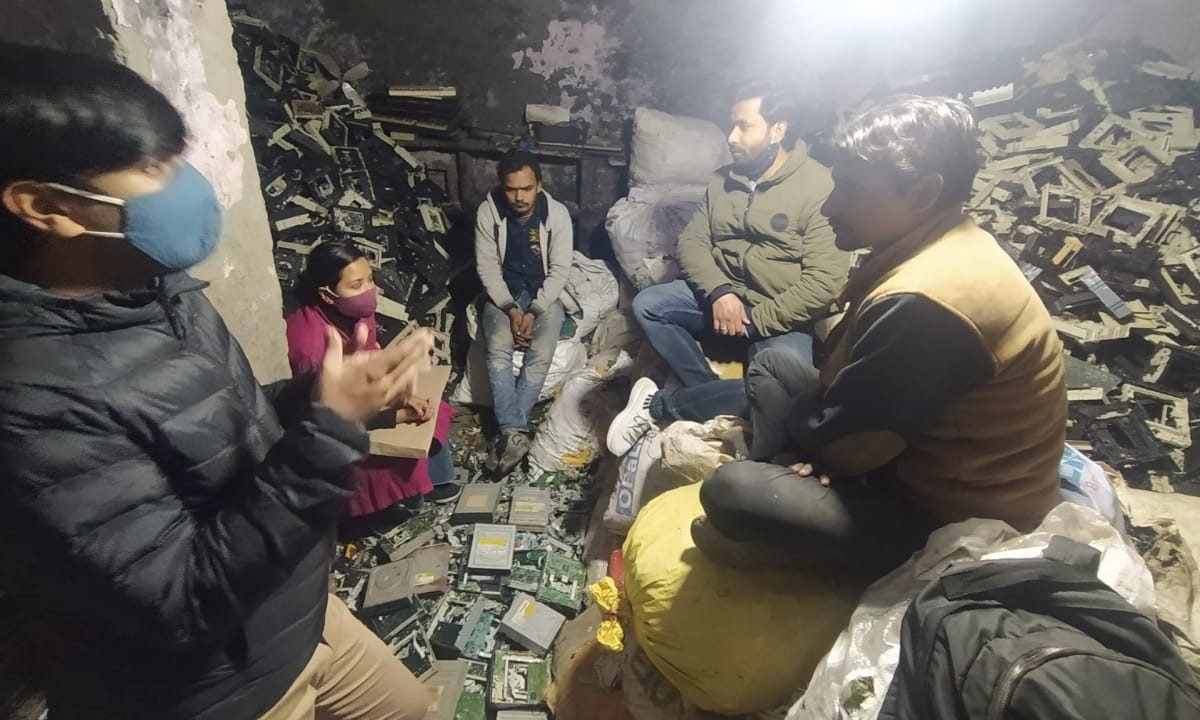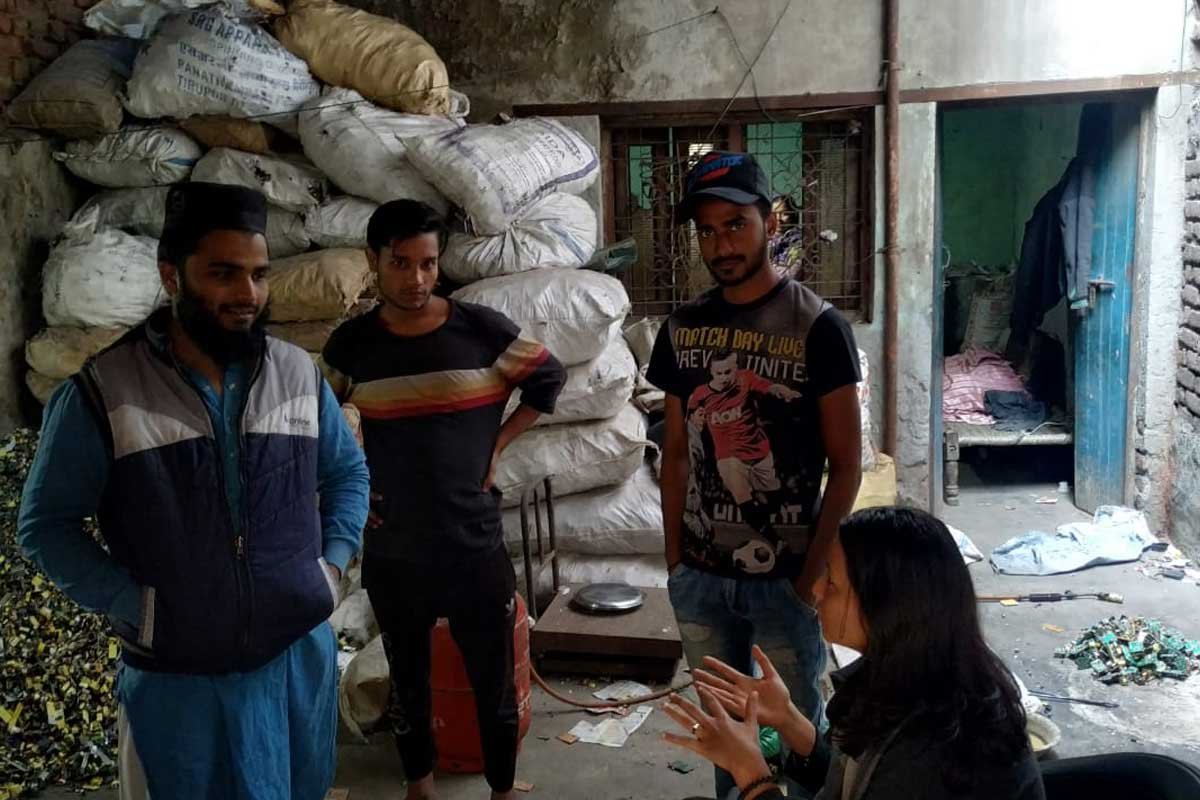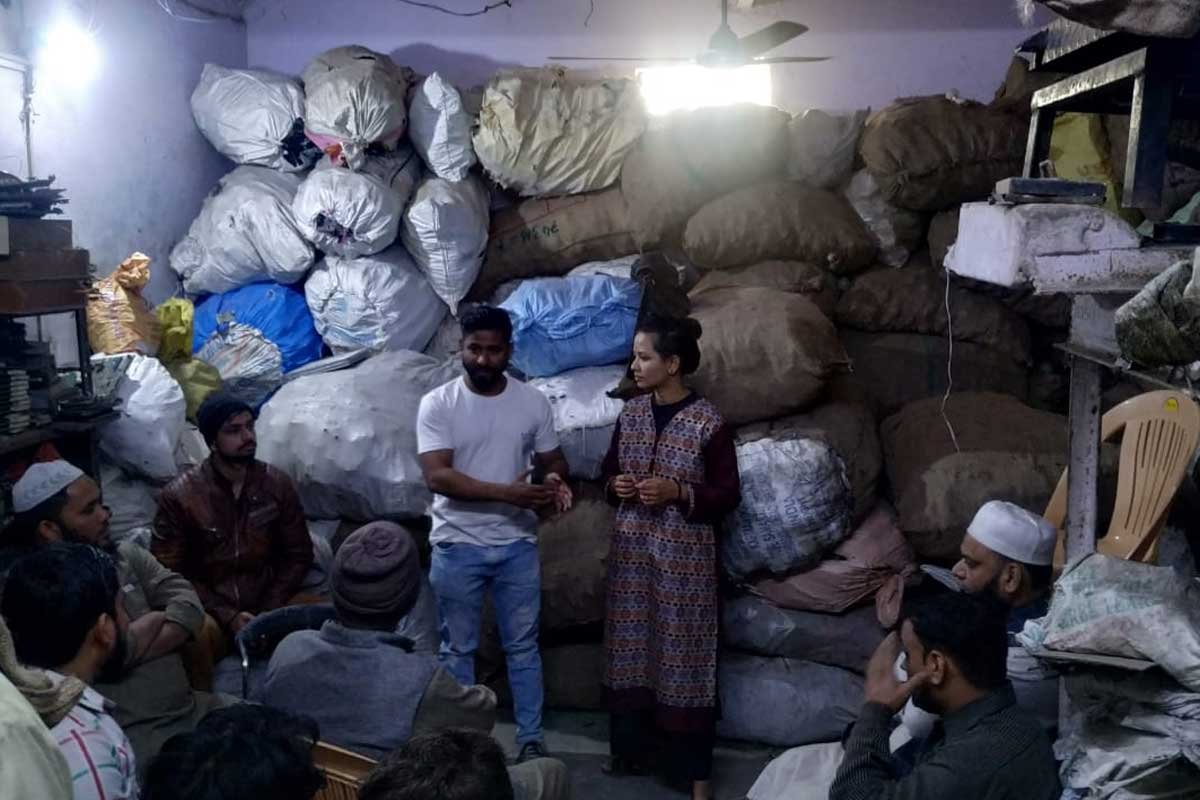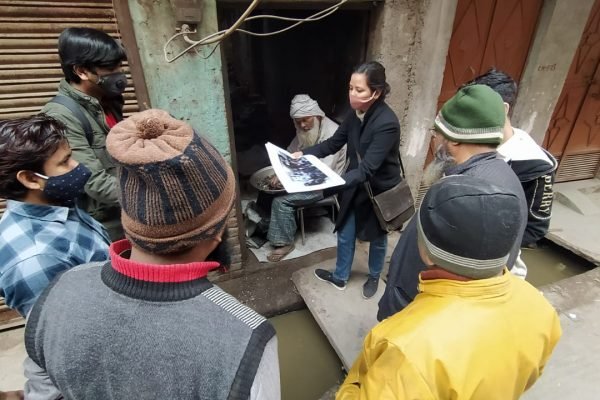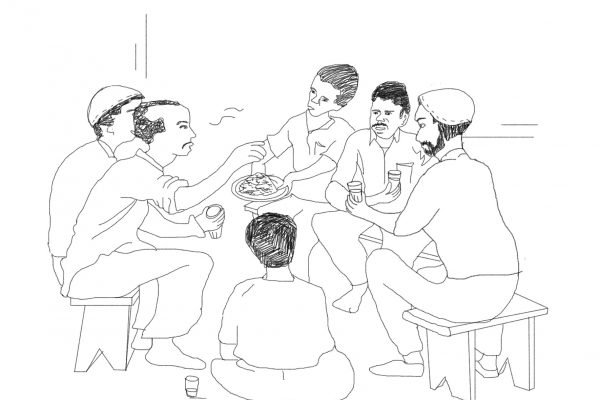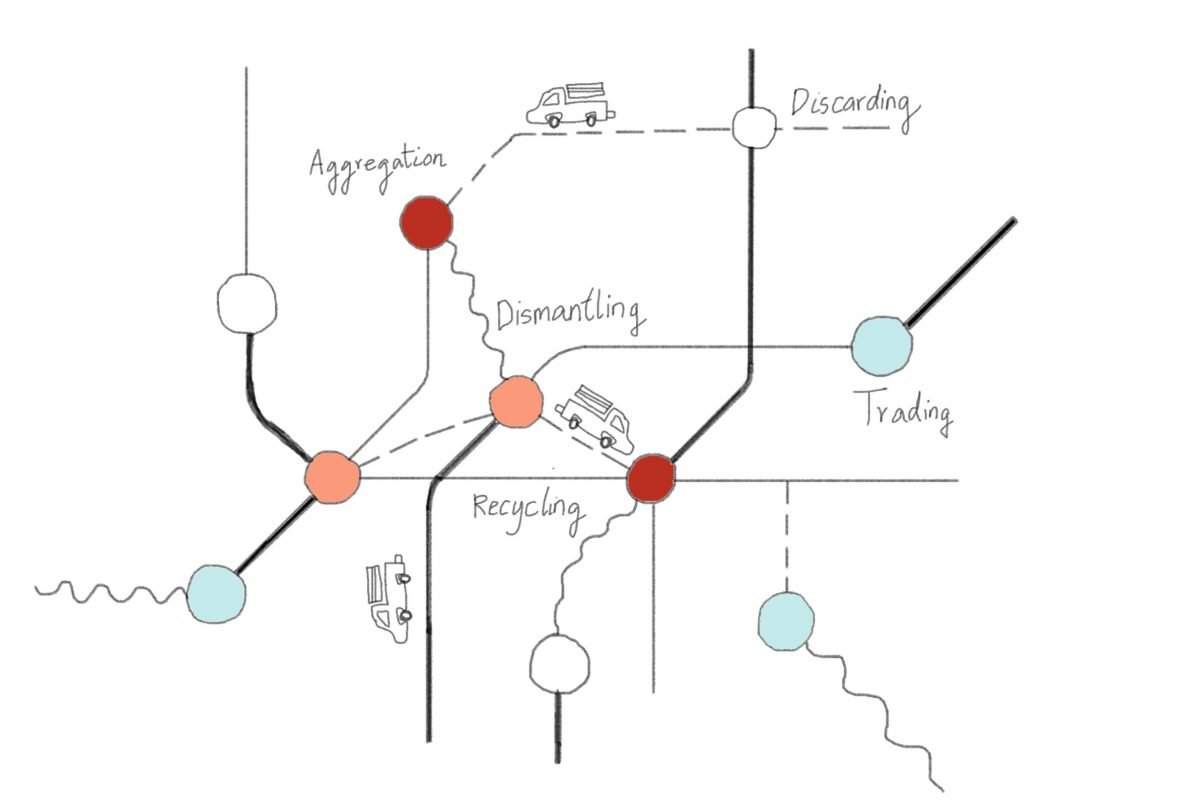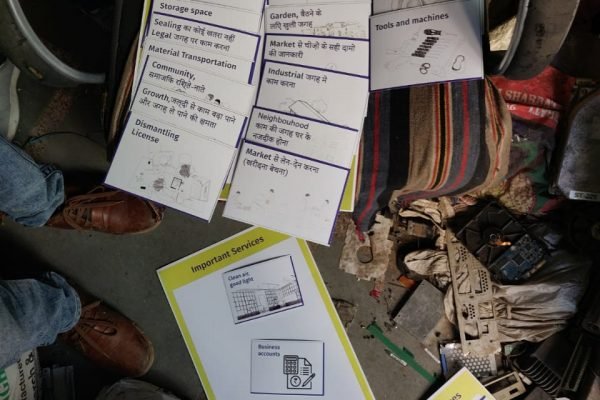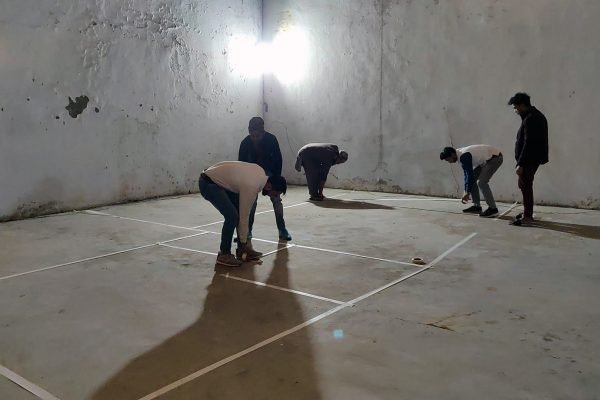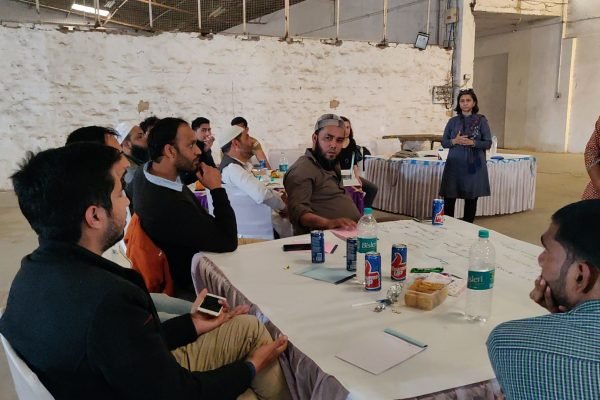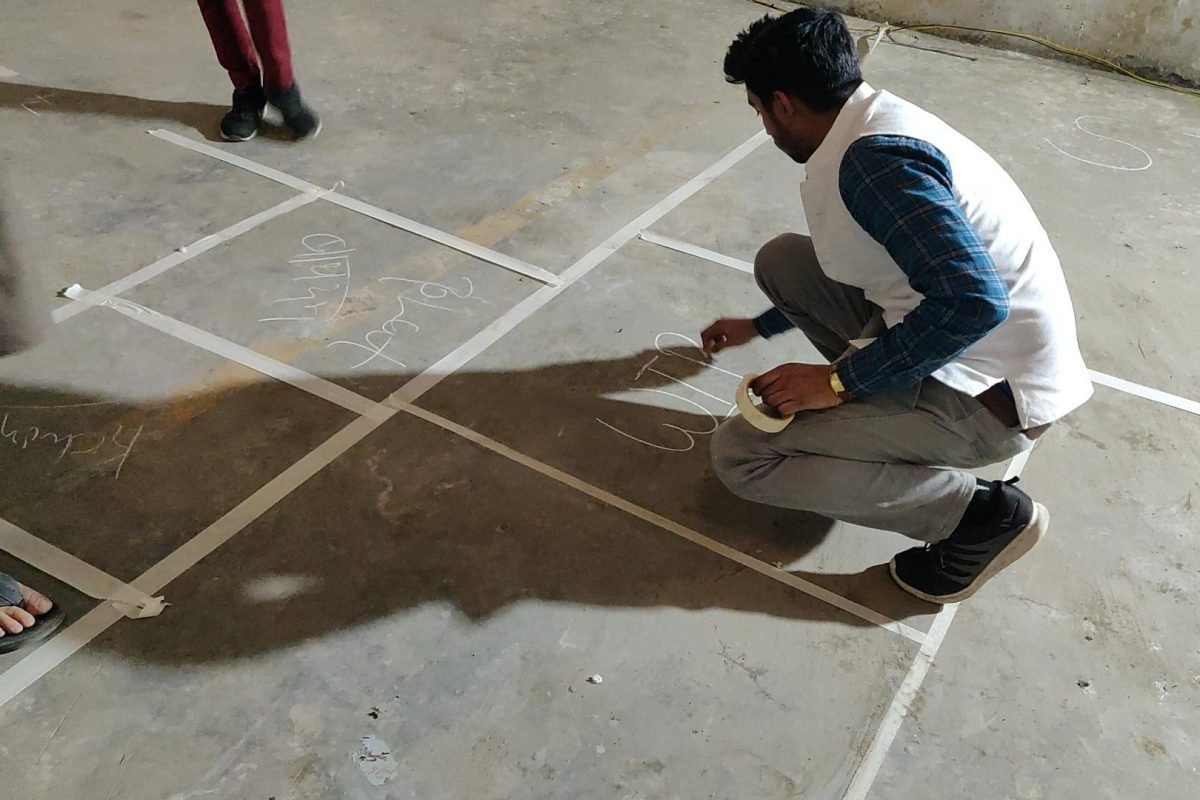OVERVIEW
India is the 3rd largest producer of e-waste in the world and formally recycles only 10% of it. The environmental and health hazards of unsound recycling practices, barriers to compliance with legal standards and marginalization threaten the livelihood of unskilled, semi-skilled and skilled labourers working in this sector.
Curry Stone Design was brought on board to partner with E[co]work Association International (EAI) to conceptualise and design an industrial co-working space for the informal dismantling community in the e-waste sector in North East Delhi, through a participatory and socially inclusive process. This would enable their transition and integration with the formal sector.
CONTEXT
Majority of India’s e-waste is treated informally, a process which is largely concentrated in North East Delhi. With a population of over 22 lacs (2.2M) spread over 62 sq.km., North East Delhi is a mix of semi-urbanised areas and urban villages. The e-waste hub is located in the neighbourhoods of Mustafabad, Seelampur, Dilshad Garden, Mandoli and Shastri Park, each with specific core activities like dismantling, smelting, refurbishing and trading. There are over 50,000 people employed directly or indirectly in informal e-waste processing and rely on it for their daily income.
Our Approach
The e-waste business in North East Delhi is a male dominated profession, with a majority belonging to the Muslim community. They have historically migrated with their families from districts and cities from the neighbouring state of Uttar Pradesh such as Meerut, Muradabad and Budaun. Many of these dismantlers were born in North East Delhi and have seen their neighbourhoods grow and change.
Unsanitary working conditions and hazardous recycling practices often lead to conflicts with local government agencies, such as the pollution control board. Although this well-established informal sector network, combined with their work skills, strongly support the local economy, the sector is often marginalized.
Building trust with the community
Our first step in building trust and relationship was identifying local people, a mix of young dismantlers and experienced businessmen, interested in working with us as representatives of their community. Our physical presence and time spent with the community, and intent to deeply understand their social and cultural background, played a huge role in strengthening our bond.. These conversations gave us insights into their goals, fears and aspirations not just as businessmen and workers, but as fellow human beings.
Humanising the informal sector
The informal sector is often described and defined in terms of the size or the volume of material it handles, or the unsound environmental practices it uses. We feel it is important to understand the sector beyond this data, and to recognise the people, families and communities who engage in e-waste dismantling. These communities have grown organically through scrap trades well before any legislation for e-waste processing was put in place. Workers developed their own mechanisms, skills and established a network to collect and dismantle e-waste to extract value from it, in exchange for a livelihood.
COVID-19 Pandemic
Until late March 2020, most of our gatherings, conversations and interactions with the community were in-person and often took place in the dismantling units within the neighbourhoods of Mustafabad and Seelampur over tea and snacks. When the nationwide COVID lockdown began, in-person interactions came to a halt. With no physical interaction with people and the neighbourhood, we resorted to bi-weekly video conference calls with our Community Representatives to understand how they are coping with this situation. Virtual engagements proved to be challenging for all stakeholders and impacted the project schedule. But after a gap of nearly 10 months, towards the end of 2020, we were able to pick up pace and are taking necessary precautions to resume our in-person interactions with the community.
Understanding networks, economics and the business model
While it was important to understand the community socially and culturally, in order to bring value to the existing system, we needed to study and understand the routes and flows of e-waste from across India to Delhi and also within Delhi. Through intensive on-site visits, discussions and online research, we continue to map and trace out material flows and existing networks. Mapping and understanding the cultural and social interconnections in the neighbourhood gives us a deeper understanding of the people living there, and to tap into their existing ecosystems.
Co-creating solutions
While introducing the idea of E[co]work to the dismantlers, it was key to design this concept with them and base it on what they truly value in their place of work. We hosted our first design workshop ‘Design Charcha’ (charcha meaning discussion in Hindi) in March 2020. The intent was to share various avenues that the community can take in order to run their business, while the sector begins to shift from being informal to formal. We also conducted an activity to reimagine how their space of work could function.
The venue of the workshop added to this experience because it was one of the potential spaces where the concept of E[co]work could be envisioned. With tapes and chalk as tools, the dismantlers present at the workshop divided themselves in groups of 3 and 4 and started visualising it. The insights from the workshop brought attention to things that they care about, such as the prayer room, rest rooms, security cameras and open gardens among others.
Conceptualising the E[co]work space
Based on the insights we received through our observations, engagements and conversations, we conceptualised an E[co]work space that encourages healthier and safer practices while also providing efficient ways of dismantling for interested e-waste micro-businesses. This includes open spaces, light and ventilation, tools, machines and more. We are currently in the process of sharing the concept visuals with the community to get their feedback to see if the design follows their vision.
Learnings
Working with a community that is living and working in North East Delhi gave us insights into their vulnerability beyond the informality of their businesses, into multiple social and political challenges that they continue to face. From delays due to law enforcement in those neighborhoods to communal riots, to the roadblock during farmers’ protests in India, these challenges affected their work and our engagement with them. We adapted to these challenges, even if it meant being flexible with timelines and deadlines.
Resources
- North East Delhi, India
Project Details
Year: 2018
Status: Completed
Location: North East Delhi, India
Size: –
Services: Design Research and Consultancy, Community Engagement, Participatory Design and Mapping, Public Space Design
Partners: E-waste dismantlers of North East Delhi, E[co]work Association International (EAI), Sofies India, Resource Futures.
